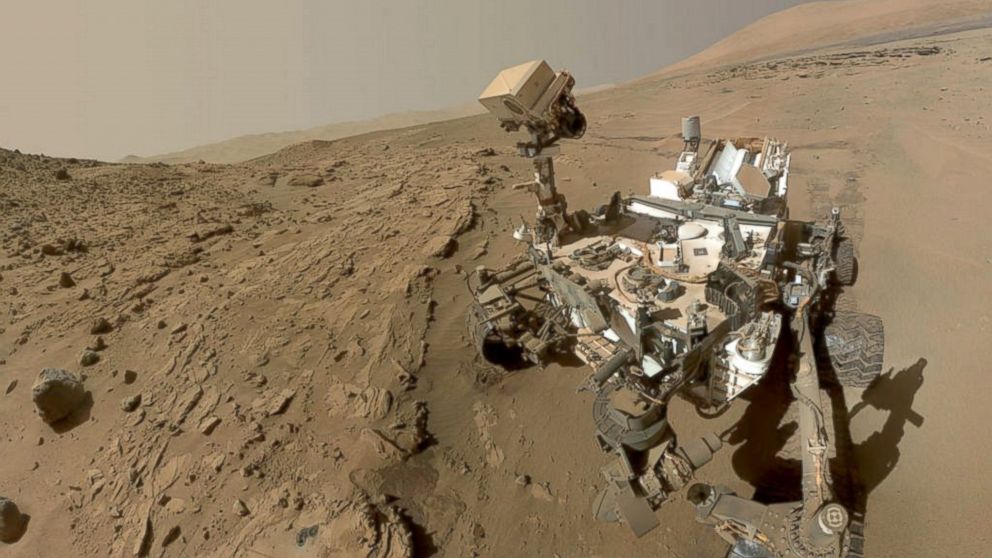NASA Curiosity Rover Celebrates First Martian Year
Curiosity showed that Mars once could have provided habitat for microorganisms.

— -- Today marks the first Martian year -- 687 Earth days -- since NASA’s Curiosity rover landed safely on Mars. The robot has had a string of groundbreaking discoveries since it landed on the red planet in August 2012.
In addition to taking a self-portrait that trumped all selfies on Earth, the rover made a major discovery in finding an ancient riverbed in an area known as Yellowknife Bay.
Two mudstone slabs that the robot sampled with its drill revealed that the site once harbored mild water, the necessary elemental ingredients to support microbial life.
“We haven’t proved that there was once was life,” Ashwin Vasavada, deputy project scientist at NASA told ABC News. “But we know that the condition could support life three or four billion [Earth] years ago.”
Vasavada said Curiosity's upcoming mission is to climb up a nearby mountain and examine the timeline of Mars' habitat.
“The layered rocks in the mountain captured the climate as it changed over time,” Vasavada said. “As we climb from the bottom to the top of the mountain, the rocks get younger and younger.”
Vasavada said this would determine the timeline of when Mars provided a habitable environment for microbial life.
“It is much harder to get evidence of the life itself,” Vasavada said. “Because unlike complex life forms such as dinosaurs, microfossils don’t leave big bones behind.”
Vasavada said he hopes Curiosity will remain in operation on Mars for another five to six Earth years, which is about two to three Martian years.




